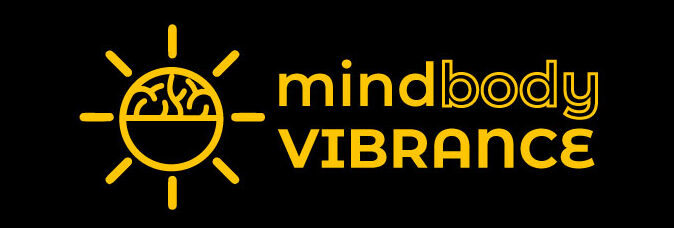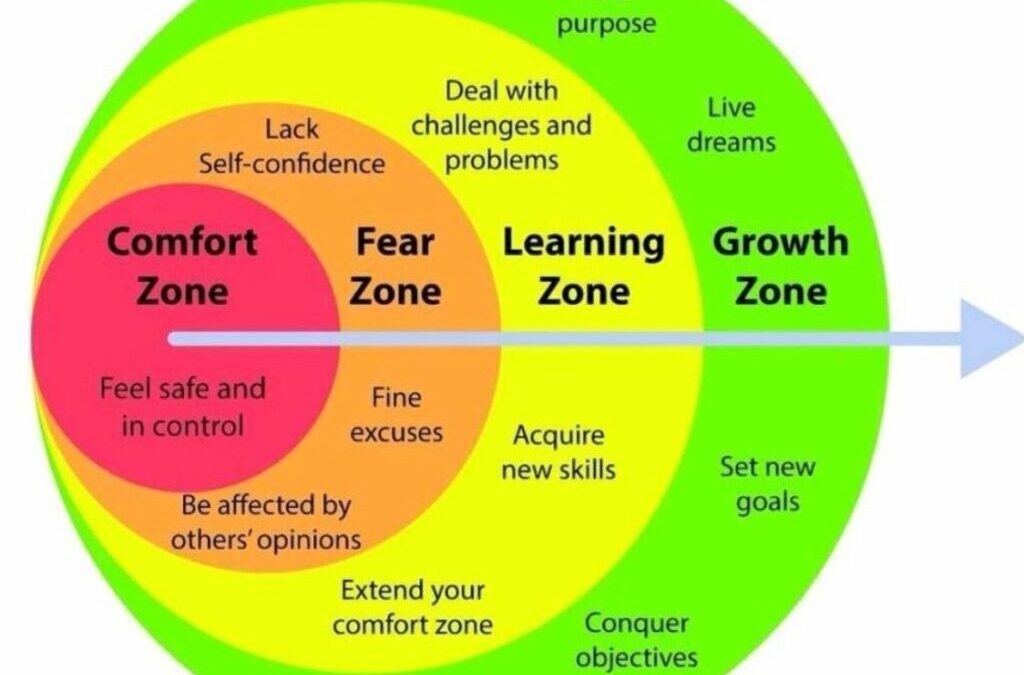Getting Stuck and Procrastinating
Have you ever had a goal and found it challenging to get started and take that first inspired action step? Perhaps it has been a vision of weight loss, money, a career change or even a business goal. The good news is that you have been visualizing desired growth and change. The reason people get stuck and procrastinate is typically due to the lack of skill, knowledge, limiting beliefs, and their current self-image doesn’t match the goal achievement. This is very common, and most people prefer to remain in their comfort zone to conserve energy and play it safe. In this post, I will share content that I’m repurposing from Tony Robbins that answers the question, how do I get out of my comfort zone?
Tips for Leaving your Comfort Zone
Accelerate Your Productivity
The human brain is powerful. It allows us to build rocket ships, explore physics and overcome unimaginable challenges. Yet, it also craves comfort. In many ways, the brain is a creature of habit. It creates neural pathways that it refers back to whenever it needs to make a decision. These pathways become patterns in our thoughts and behaviours. That’s why it seems like we get stuck in a rut sometimes. If you feel like your life is on a loop, you may need to leave your comfort zone.
What is the Comfort Zone?
The comfort zone is a psychological state in which individuals feel safe. It fulfills our need for certainty, one of the most powerful Six Human Needs. When we’re in our comfort zone, we know what to expect and we know how to react. We feel that we have some control over the situation. All of our immediate needs are filled, and we feel at peace.
When we leave the comfort zone, we’re no longer in a familiar and controllable situation. The brain hasn’t created the pathways it needs to know how to react – and we may feel anxiety and fear. Yet learning to leave your comfort zone is essential.
Why leave the Comfort Zone?
Living life in your comfort zone has obvious benefits: low stress reduced anxiety, and general feelings of well-being. But it can also make you feel like you’re in a holding pattern. That’s because uncertainty and growth are also human needs. It’s a paradox: Too much certainty, and we won’t fulfill our need for growth and new experiences. But too much uncertainty can lead to anxiety and lack of productivity.
The ability to move out of your comfort zone in regular, positive ways allows you to strike the right balance between certainty and uncertainty. Pushing your boundaries can make you more productive, more adaptable and more creative. As you push your personal boundaries, you train your brain to adapt to new situations and create new neural pathways that make you a better problem-solver, decision-maker and leader. You truly become unstoppable.
How to Leave Your Comfort Zone
To leave the comfort zone, you must learn how to control the natural fear and anxiety you will feel when trying new things. It starts with getting in touch with your emotions and transforming your mindset.
Find Your Baseline
To move out of your comfort zone, you must determine your risk tolerance. Most people think they’re more risk-tolerant than they actually are – and many people don’t actually know their risk tolerance because they’ve never been faced with an extreme situation in which it’s been tested. To find your baseline, determine your driving force. If your number one human need is certainty or connection, you may need to leave your comfort zone more than others.
Master Your Emotions
Those who can easily leave comfort zones may have more emotional mastery than those who stay stuck in routines. This doesn’t mean that they repress their emotions – in fact, they do the exact opposite. They acknowledge that their emotions are there to guide them. They feel their feelings fully and ask themselves, “What is this emotion really telling me?” When you leave your comfort zone, anxiety is normal. It’s telling you that you feel vulnerable. Acknowledge it, then move past it.
HERMAN
MAY 27, 2021 AT 8:02 PM
This is an astounding post on advancing past one’s own usual range of familiarity, particularly since we have been living in a defensive shell the most recent year. I worked in positions with cutoff times, so I generally got a robotized kick in the jeans when the cutoff time drew closer. Yet, no cutoff time? Disregard it. I’d put off the work until extremely late where there was abruptly no space for botches. Like your outline and article brings up, it’s not difficult to remain in your usual range of familiarity or, best case scenario, get frozen in the dread zone. The learning zone is consistently useful for me, yet making it to the development zone is a test. Hesitation murders progress, and like you said, dread of disappointment will make us freeze up, yet your most significant point is tolerating disappointment and discovering the exercises inside. Much obliged to you for the great article.
MICHAEL
MAY 28, 2021 AT 2:21 PM
Thanks for your comments Herman and I’m glad you enjoyed this post.
MEG
SEPTEMBER 30, 2021 AT 4:20 PM
Hey Michael, love the post!
I’ve read a bit into growth mindsets before but you’ve added a lot of depth and detail I didn’t know I was missing!
The concept of the “Six Human Needs” is really interesting to me, do you have any content that delves into this a bit deeper?
Thanks!
MICHAEL
OCTOBER 3, 2021 AT 3:37 PM
I appreciate your comments, Meg. Currently, I don’t have further content on the 6 Human needs and it is definitely a topic I will include in the future. In addition to Growth, they are 1 Certainty, 2 Uncertainty/Variety, 3 Significance, 4. Connection/Love, 5. Contribution
AUBIN TSHIYOLE
JANUARY 5, 2022 AT 11:37 AM
Hi Michael,
People also get stuck because of fear. The question that crosses most people’s minds is, what if I fail? – Or, failure is not really a failure. It is a step to success. As a result, people will prefer to entertain their comfort zone because they do not accept failure.
To be honest, I have enjoyed reading your article. You have offered us nice tips and keep the good work up.
Thank you.
MICHAEL
JANUARY 6, 2022 AT 11:43 AM
Thanks, Aubin. We learn from mistakes. Failure only comes from giving up and quitting on our goals.
LINECOWLEY
MAY 18, 2022 AT 3:51 PM
You are so right, us humans are creatures of habit and therefore find it hard to leave the protective cocoons that we live in. I have a fear of the unknown, which often means that I don’t venture off to do things on my own, I would rather let someone else take the lead and suggest something that I then do with them.
But I do want to get out of my comfort zone and do different things, as I also do enjoy a challenge. Do you have additional material on how to overcome fear of the unknown?
MICHAEL
MAY 23, 2022 AT 8:45 PM
Hi LineCowley. Thanks again for sharing your experiences.
Your fear of the unknown is completely normal because our brain’s highest
priority is to protect us and keep us safe. Take a few minutes to watch the following Youtube video
from on Fear. Anytime we want to make change in our life we must be prepared to break through a
terror barrier towards growth. Enjoy
JOSEPH STASAITIS
June 7, 2022 AT 12:27 PM
This information is so important and I like how you presented the progression of movement out of the comfort zone. Your images help with the understanding as well as creating a viable path to take. I agree that finding your baseline is extremely important. Breaking old habits that keep us in a repetitive pattern is necessary and will occur as we emerge from our comfort zones one step at a time. Dealing with resistance along the way will only increase our confidence and inner strength. You have provided many important concepts as well as ways to proceed. Surrounding ourselves with like-minded folks is certainly one of those ways.
MICHAEL
JUNE 8, 2022 AT 1:23 PM
Hi Joseph. Thanks for sharing your comments. Yes its so important for us to break through fear barriers in order to change, grow and get what we really want. As Joseph Campbell once said “The cave you fear to enter holds the treasure you seek”. Be well.
CAROLYN
DECEMBER 3, 2022 AT 11:10 PM
Thanks for your post. I find fear of failure often drives me to stay in my comfort zone. Is there an easy way to get past fear of failure?
Since the beginning of the pandemic, we have been limiting ourselves from going forward. Any suggestions on how to put ourselves out there again?
MICHAEL
DECEMBER 18, 2022 AT 5:26 PM
Thanks for your comments Carolyn. The key is becoming aware of the fear in the moment that you are thinking of doing a task outside of your comfort zone (big or small). Understand is Fear due to a lack of skill or knowledge? Is it fear of being judged or criticized? Or is there a real threat of danger? Awareness is the key and Fear should not be a signal to stop. If there is something you really want to do and have been holding yourself back, take several deep breaths, in through your nose and out through your mouth to calm the sympathetic nervous system and push through to take action. With repetition you will cross over from your comfort zone and crash through the terror barrier that’s been holding you back.
ATTICAEATERIES
DECEMBER 7, 2022 AT 11:15 AM
Great site and great content. I support this idea, all the way. Comfort zone is really toxic, and you must realize it before it’s too late. I believe, comfort zone and fixed mindset is like smoking. It kills a person slowly. Just like you have to quit smoking, you have to quit living in your comfort zone!
MICHAEL
DECEMBER 9, 2022 AT 11:11 PM
Thanks for the comments. You can get buried alive in comfort! 100%

